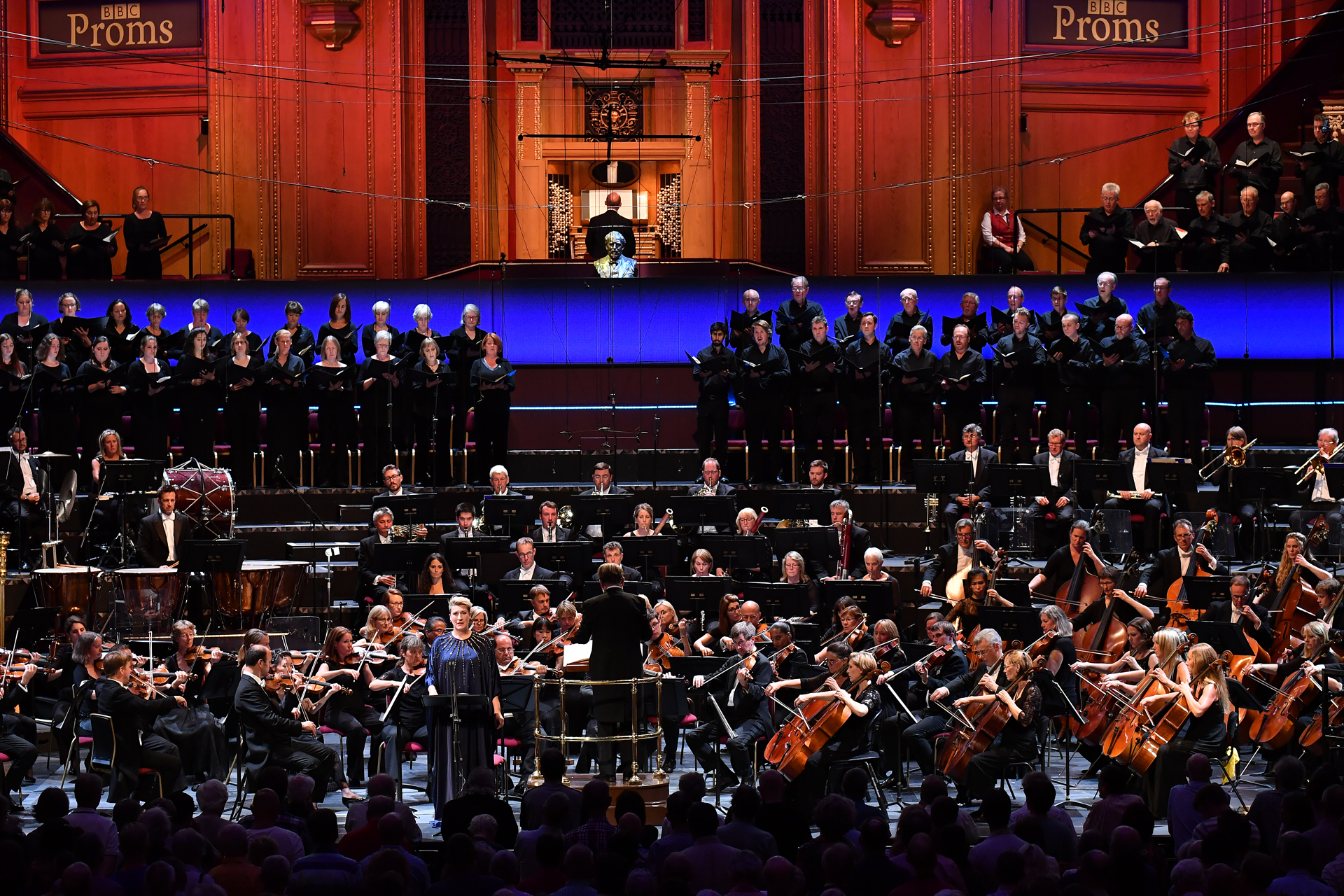Royal Albert Hall, Thursday 29th August, 2019
An evening of English music under the direction of Sir Andrew Davis could not fail – and it didn’t. His rapport with the BBC forces has been long in gestation and their response to his subtle control is exemplary.
Vaughan Williams’ Fantasia on a Theme of Thomas Tallis may be very familiar but we don’t often hear it live or within the ambience of the RAH which allows the whispers of sound to disappear and emerge with consummate ease. Only the odd cough disturbed the genuine hush of the score which flowed as if created for the first time.
After the interval came Elgar’s The Music Makers. Andrew Davis seemed to highlight the intense melancholy which underpins the score and while there are bombastic moments it was the darker side welling up which lingered in the memory. It was a pleasure to welcome Dame Sarah Connolly as the soloist after her absence earlier in the season. Her passionate rendition of the text was always firmly under control and beautifully balanced. As with the earlier Vaughan Williams, it was the quieter moments that made the most impact, with the choirs almost imperceptible at times. Set alongside the other oratorios, The Music Makers gets far fewer outings though in our present troubled times it seemed all the more apt.
Between these works we heard Hugh Wood’s Scenes from Comus with a text lifted from Milton. Though it uses soprano and tenor soloists they are not specific characters and the text they sing often seems to float between an individual voice and a narrator. The listener is encouraged to go with the flow rather than try to make logical sense of the narrative. This works well for much of the time and the central ecstatic dance is particularly impressive. However there are longer sections when the sense of stasis takes over and it is unclear quite where the score is heading.
Andrew Davis is an enthusiastic supporter of Hugh Wood and one can assume what we heard was very much what the composer would wish – and he was present in the hall, receiving a wildly enthusiastic reception at the end.
Soprano Stacey Tappan and tenor Anthony Gregory dealt admirably with the high-lying setting but often the text vanished within the ample spaces of the hall.
Throughout, the BBCSO had produced a warmth and sensitivity which never failed.

